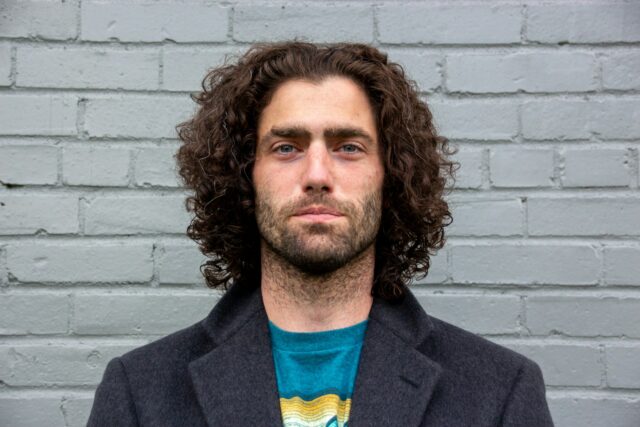17 Signs You’re Dealing With An Emotionally Cold Person
 Envato Elements
Envato Elements They’re aloof, detached, seemingly impervious to emotion, and trying to connect with them feels like hugging a block of ice.

Dealing with an emotionally cold person can be frustrating and downright painful, making you wish you’d never bothered. But how do you spot the signs that you’re dealing with someone who’s emotionally frigid? Here are some indicators that point to not only a frosty exterior but an equally chilly interior too.
1. They never ask about your feelings or what’s going on in your head.

An emotionally cold person isn’t interested in your inner landscape. They don’t inquire about your day, your worries, your hopes and dreams. It’s like your emotional world doesn’t even register on their radar. Conversations with them are strictly surface-level, focused on logistics, tasks or impersonal chitchat. They don’t create space for you to share your feelings or show any curiosity about your internal experience. It’s a one-way street of superficial communication.
2. Their facial expressions rarely change.
 Source: Unsplash
Source: Unsplash Emotionally warm people are expressive. Their faces mirror their inner world, brightening with happiness, darkening with concern, flashing with surprise. But an emotionally cold person’s face is like an inscrutable mask. They maintain the same cool, impassive expression, no matter what’s being discussed. Smiles are rare and fleeting, and their eyes remain distant and unreadable. It’s like all their facial muscles are frozen in neutral, and it ain’t down to Botox. Trying to gauge their reactions or feelings is like deciphering a blank wall.
3. They’re masters of the non-committal response.
 Source: Unsplash
Source: Unsplash Conversations with an emotionally cold person are peppered with verbal shrugs and vague, too-casual replies. Ask them a question and you’ll get a “maybe,” “I don’t know,” or “we’ll see.” Try to nail down plans, and it’s all, “Let me get back to you” with no concrete follow-up. They dodge direct questions and avoid taking a stance. They’re incredibly evasive for no apparent reason, which then keeps you in a constant state of limbo, never quite sure where you stand.
4. They divert the conversation whenever it gets too personal.
 Source: Unsplash
Source: Unsplash An emotionally cold person guards what’s going on inside of them like a government secret. Whenever a conversation veers towards the personal or emotionally vulnerable, they quickly change the subject. Ask them about their feelings on a fraught topic and they’ll launch into a diatribe about something else entirely. Confide in them about your own struggles and they’ll brush past it with a cliche platitude. They’re great keeping discussions in the shallows, and are never interested in going into the deep end.
5. They never initiate physical contact.

Emotionally warm people are often physically affectionate. They hug, touch your arm during conversation, offer high-fives and comforting pats. However, an emotionally cold person maintains a careful physical distance. They don’t initiate hugs or casual touches. In fact, they might even stiffen or recoil when people try to make physical contact. It’s like they’re surrounded by an invisible force field, radiating a “do not touch” vibe. This lack of physical warmth often mirrors their emotional distance.
6. They’re slow to respond to your messages.
 Source: Unsplash
Source: Unsplash In today’s hyper-connected world, a slow message response time speaks volumes. An emotionally engaged person is usually prompt in their replies, even if just to say, “I’ll let you know.” But an emotionally cold person leaves you on “read” for days. Your heartfelt missive goes unanswered, and your time sensitive question just sorta hangs there. It’s like your attempts to connect are just screaming into the void. Their lacklustre response rate proves your low priority in their life.
7. They give generic, lacklustre gifts.
 Source: Unsplash
Source: Unsplash Gift-giving is an act of emotional attunement. It’s a chance to show how well you know and care about someone. An emotionally engaged gift-giver picks up on your hints, remembers your offhand remarks, and selects something personal and meaningful. In contrast, an emotionally cold person’s gifts feel generic and impersonal, like an afterthought grabbed last-minute at the corner shop. It’s the difference between a treasured keepsake and an Amazon gift card. The chilly anonymity of their gifts speaks to their emotional detachment.
8. They never share anything vulnerable about themselves.

Emotional intimacy is a two-way street. It requires mutual vulnerability and sharing. But an emotionally cold person rarely discloses anything raw or revealing about their own inner world. They don’t confide their insecurities, expose their wounds, or admit their mistakes. It’s all surface chatter and bravado, never a peek behind the curtain. This lack of reciprocal vulnerability makes it hard to truly know them. They remain an enigma, keeping you at arm’s length from their authentic self.
9. They just can’t accept compliments and praise.
 Source: Unsplash
Source: Unsplash Accepting compliments graciously is a sign of emotional warmth and self-assurance. But an emotionally cold person often deflects praise and downplays their accomplishments. They brush off your gushing admiration with a dismissive, “it was nothing.” They change the subject when you try to applaud their efforts. It’s like they’re allergic to acknowledging their own worth. This deflection of positive feedback can be a sign of low self-esteem, but also an unwillingness to let you in emotionally.
10. Their body language is closed off and guarded.

An emotionally cold person’s detachment is often mirrored in their body language. They cross their arms, creating a literal barrier between you. They angle their body away during conversation, sending a subtle “keep away” signal. They avoid eye contact or maintain a piercing, unblinking stare that feels more interrogative than intimate. Their posture is stiff and unyielding, never relaxing into an easy slouch. These non-verbal cues broadcast loud and clear: “proceed with caution, feelings not welcome here.”
11. They’re always the first to end interactions.
 Source: Unsplash
Source: Unsplash An emotionally engaged person loves spending quality time with people. They linger over goodbyes, relishing a few extra moments of connection. In contrast, an emotionally cold person is quick to pull the plug on interactions. They’re always the first to say “I should get going” or “talk to you later.” They don’t dawdle or draw things out. Conversations with them feel abruptly curtailed, always cut off before they can get too close. It’s like they’re allergic to emotional intimacy.
12. They’re highly critical and judgmental.
 Source: Unsplash
Source: Unsplash Emotionally cold people often use criticism and judgment as a way to maintain distance. Rather than extending empathy or compassion, they default to harshness and fault-finding. They nitpick your choices, mock your missteps, and offer unsolicited “constructive feedback.” It’s like they’re always on the hunt for your flaws and foibles. This hyper-critical stance keeps you on the defensive and prevents real closeness. After all, it’s hard to be vulnerable with someone who’s constantly judging you.
13. They never apologise or admit when they’ve messed up.
 Source: Unsplash
Source: Unsplash Admitting fault and offering a heartfelt apology is an act of emotional generosity. It requires setting your ego aside in service of the relationship. But an emotionally cold person rarely says “I’m sorry” and takes responsibility for their actions. They deflect blame, make excuses, or simply pretend nothing happened. They refuse to acknowledge how their behaviour impacted you. This lack of accountability is a way of dodging the messy, uncomfortable work of emotional repair and connection.
14. They belittle your emotions and problems.
 Source: Unsplash
Source: Unsplash Emotionally cold people often invalidate other people’s feelings and struggles. They respond to your vulnerabilities with dismissive eye-rolls, shrugs, or a brusque “get over it.” They make you feel like your problems are trivial and your emotions overblown. “Oh, you think THAT’S bad? Let me tell you about REAL hardship.” They one-up your pain instead of holding space for it. This emotional belittling is a way of maintaining superiority and avoiding the discomfort of genuine empathy.
15. Their tone is sarcastic and condescending.

Sarcasm and condescension are the calling cards of an emotionally frigid person. Rather than expressing themselves directly and kindly, they opt for cutting quips and patronising remarks. Their compliments are backhanded, their jokes mean-spirited. They make you feel small and foolish, like you’re always the butt of some secret joke. This communication style keeps you off-balance and insecure, unable to relax into the warmth of true connection. It’s a way of wielding words as weapons.
16. They mock sentimentality and emotional expression.
 Source: Unsplash
Source: Unsplash An emotionally cold person often views expressions of feeling as weak and distasteful. They scoff at sentimental gestures, roll their eyes at heartfelt declarations, and make gagging noises at public displays of affection. They pride themselves on being above all that “touchy-feely” stuff. They view emotional control as a badge of honour and openly disdain those who wear their hearts on their sleeves. This derision of emotional openness is a defence mechanism, a way of projecting their own discomfort with vulnerability.
17. They make you question your own emotional instincts.
 Source: Unsplash
Source: Unsplash Dealing with an emotionally cold person can be disorienting. Their detached reactions and lack of warmth can make you second-guess your own emotional radar. You start to wonder if you’re being too sensitive, too needy, too much. You try harder and harder to elicit a “normal” emotional response from them, only to be met with more coolness. This self-doubt is a sign that you’re doing all the emotional labour in the relationship, twisting yourself into knots to bridge the gap. A truly fulfilling connection doesn’t make you question your own instincts.





